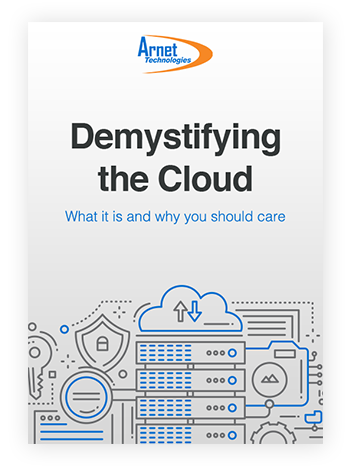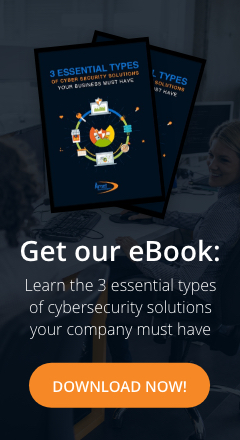Cloud computing is quickly gaining popularity these days. Businesses both big and small are starting to leave their traditional IT infrastructure behind and move to the cloud. But what makes cloud computing better than your traditional IT infrastructure? Let’s explore the differences between the two, and what will work best for your business.
Traditional IT infrastructure
Traditional IT infrastructure consists of an on-site server with several desktop computers connected to it. This allows your employees to access company data and apps as long as staff members are connected to the network. With traditional IT infrastructures, you maintain control of your organization's applications and data on-site.
However, there are a few significant downsides to traditional IT infrastructure:
- Difficult and costly to scale – Scaling a traditional IT infrastructure requires additional hardware to accommodate the growing number of users.
- Updates and upgrades have to be applied as soon as they’re available – Traditional IT infrastructures need to constantly upgrade their software to ensure network security and stability at all times.
- Operation and upkeep require experienced IT staff – Running and maintaining a traditional IT infrastructure can be difficult without an experienced IT staff. Overall, the cost of a traditional IT infrastructure may not be ideal for small-to-medium sized businesses (SMBs).
Cloud computing
Unlike a traditional IT infrastructure, cloud computing is a virtual hosting solution. The physical network, servers, software, and data are all hosted in an off-site data center that’s managed by the cloud provider. This is perfect for SMBs because they don't have to invest a huge amount of money to purchase physical hardware and software licenses. Instead, they can ‘rent’ the IT assets they need from cloud computing providers. Other benefits of migrating to the cloud include:
Download our free eBook!
Interested in moving to the cloud? Gain more background information on how it works and why you need it by reading our free eBook: Demystifying the Cloud: What it is and why you should care.
- Resilience – The cloud stores data and various applications across several servers, so if one server fails you won't experience downtime and you don't have to worry about losing your data. Compared to traditional IT infrastructure, the cloud can provide you with greater storage space, server resources, and computing power. This means applications stored in the cloud will run better and faster.
- Scalability and flexibility – When it comes to scalability and flexibility, the cloud has a clear advantage over traditional IT infrastructure. Cloud servers have more resources and storage space and can easily be scaled up or down depending on the current needs of your business. The cloud also gives you access to the latest innovations and software solutions that are less likely to work with obsolete components of traditional IT infrastructure.
- Security – Since cloud computing is an external form of data storage, anyone with server access can view and use stored applications and data as long as there's a stable internet connection. Your technology partner will employ extra security precautions and use state-of-the-art software solutions such as ID-monitoring, spam protection, and the latest antivirus technology to ensure your organization's private data in the cloud is safe from cybercriminals.
If you're planning to migrate your business to the cloud, Arnet Technology's EasyNET is the perfect cloud solution for your small business. It allows you and your employees to use devices such as laptops and tablets to work on their files from just about anywhere there is an internet connection.
To ensure data security, our IT experts will always be monitoring and securing your data against possible cyberattacks, allowing you to focus on the core functions of your business. If you need more information on how EasyNET can help improve your business operations, give us a call today.



